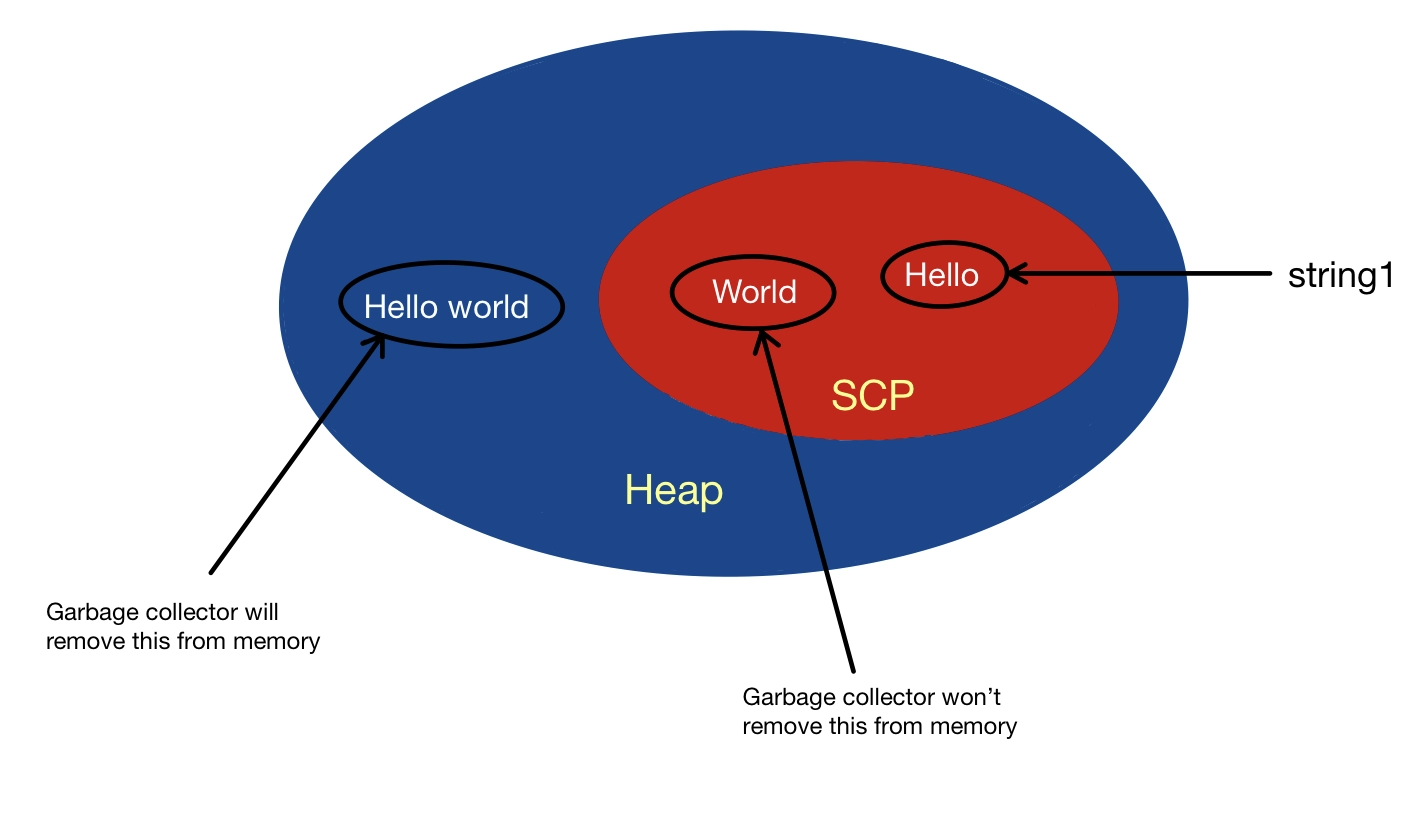Why Are Strings Immutable in Java? Key Factors and Benefits Described
Why Are Strings Immutable in Java? Key Factors and Benefits Described
Blog Article
What Is Immutable Strings and Just How It Functions
In the realm of programs, understanding the principle of unalterable strings is extremely important for creating secure and durable applications. Unalterable strings refer to strings that can not be altered after they are developed, guaranteeing data honesty and predictability within the code. This basic concept plays an important duty in various shows languages and provides a distinct technique to taking care of data. By checking out the details of how unalterable strings work, one can uncover a globe of benefits and opportunities that can raise the quality and performance of software application growth.
The Essentials of Immutable Strings
Immutable strings, as a basic principle in shows, are character series that can not be altered as soon as they are produced. This suggests that when a string is assigned a worth, that worth can not be modified. In languages like Python and Java, strings are immutable items, causing numerous ramifications in regards to memory management and data honesty.
One of the vital benefits of unalterable strings is that they provide a feeling of safety in data control. Given that the content of an unalterable string can not be modified, it guarantees that the initial information stays undamaged, lowering the risk of unintentional adjustments throughout program implementation (Why are strings immutable in Java?). This home additionally streamlines debugging processes, as developers can rely on that once a string is specified, its worth will not be unintentionally modified
Furthermore, immutable strings promote effective memory usage. When a new string is created based on an existing one, instead of changing the initial string, the new value is stored individually. This strategy enhances performance by lowering memory fragmentation and simplifying memory appropriation processes. Overall, understanding the fundamentals of unalterable strings is important for understanding programming ideas and optimizing code efficiency.
Advantages of Immutable Strings
Building upon the security and performance advantages of unalterable strings, their benefits prolong to boosting code reliability and streamlining concurrent programming tasks. By being immutable, strings can not be changed after production, which eliminates the risk of unintended adjustments in the information they keep. This intrinsic immutability makes sure that when a string is produced, its value continues to be continuous throughout the program's execution, decreasing the chances of pests triggered by unforeseen alterations.
In addition, immutable strings add to code reliability by making it easier to reason about the state of a program. Given that strings can not be changed, designers can trust that a string will constantly hold the same worth, simplifying debugging and upkeep initiatives. This predictability leads to a lot more secure and trustworthy codebases.

Execution in Programs Languages
Within various shows languages, the consolidation of unalterable strings is a basic aspect that affects just how information is handled and controlled within code frameworks. The implementation of immutable strings differs across various shows languages, with each language supplying its own systems to support this principle.

In contrast, languages like C and C++ do not have integrated assistance for unalterable strings. Programmers in these languages should manually implement immutability by implementing policies within their code to avoid straight modifications to string items.
Finest Practices for Collaborating With Immutable Strings
When managing immutable strings in shows languages like Java and Python, adhering to best methods ensures secure and effective information control. One of the vital best methods is to utilize StringBuilder or StringBuffer instead of directly controling strings, particularly when managing comprehensive concatenation operations. These courses supply mutable choices for string control, assisting to prevent unneeded memory allocations and improving performance.
In addition, when functioning with delicate information such as passwords or API secrets, it is vital to stay clear of saving them as simple text in immutable strings. Utilizing secure storage space devices like char selections or specialized collections for taking care of delicate info helps reduce security this post dangers linked with unalterable strings.
Real-world Applications and Instances
Discovering functional implementations of unalterable strings in various sectors exposes their significant effect on information stability and system dependability. In the healthcare market, unalterable strings play a vital duty in guaranteeing the security and privacy of client information. By preventing unauthorized modifications to delicate information such as medical records and prescriptions, unalterable strings assist maintain compliance with strict privacy guidelines like HIPAA.
Economic organizations also gain from the unalterable nature of strings to improve the safety and security of client data and deal documents. Unalterable strings help prevent scams and unauthorized alterations to financial details, offering a durable defense versus cyber dangers and making certain the depend on and self-confidence of customers.

Final Thought
Finest methods for functioning with unalterable strings include staying clear of straight modifications and using techniques that return brand-new string objects. Real-world applications of unalterable strings include data file encryption, caching, and string control tasks.
Unalterable strings refer to strings that can not be modified after they are developed, making sure data integrity and predictability within the code. When a new string is developed based on an existing one, rather than modifying the original string, the new value is saved independently.In languages like Java and Python, strings are webpage immutable by default, meaning that as soon as a string object is produced, its value can not be changed - Why are strings immutable in Java?. Finest methods for working with immutable strings include staying clear of straight alterations and making use of methods that return new string things. Real-world applications of unalterable strings consist of data encryption, caching, and string manipulation jobs
Report this page